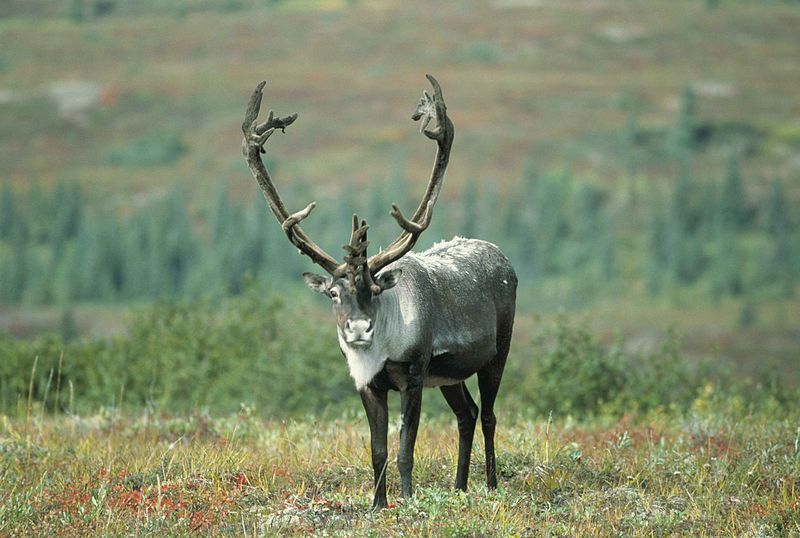A Keystone Issue
President Obama has stated that he will veto any plan that would approve Keystone XL, a final stage of the Keystone Pipeline. This time, he didn’t have to. The Senate needed 60 votes to prevent a filibuster of the project, and a vote on November 19, 2014, demonstrated that only 59 senators support the plan.
Still, proponents and critics of the plan alike recognize that this is hardly the end of the Keystone XL. Republicans will control the Senate of the 114th Congress, so should the proposal come up for a vote in the Senate next year, it will most likely pass — whereupon President Obama would veto it.
As with many of Obama’s other decisions, he has already come under fire. Politicians and columnists alike have cited Obama’s decision as a case of him putting politics ahead of science and the economy [1]. Support for the Keystone XL, however, stems from either an inability to look into the future and reflect upon its consequences, or a misunderstanding of these consequences. The Keystone XL is terrifying.
The Keystone XL would carry tar sands oils extracted from southwestern Canada, and transport the oil to the United States at a rate of 830,000 barrels per day. Burning oil, which is necessary for end products like gasoline, already releases carbon emissions, contributing to pollution and global climate change. Tar sands oils, however, have an even larger environmental impact than conventional oil. The Congressional Research Service found that crude oil from Canadian tar sands emit about 17% more carbon emissions than the average American oil barrel [2]. The Sierra Club states that the environmental impact of switching a car from conventional oil to tar sands oil is enough to counteract making the vehicle seven miles per gallon more efficient [3].
Extracting tar sands oil is just as problematic as using it. Much of the tar sands oil is beneath North America’s boreal forest belt — a nearly completely continuous band of coniferous forest stretching across Canada [5]. This is an important biome, hosting biodiversity incredible for a temperate climate. Destruction of portions of the boreal belt interrupts a beneficial carbon sink and endangers wildlife characteristic of the region, such as Caribou, and the over 300 species of birds that frequently breed in the boreal belt [4, 6].
The economic impact of the pipeline would be brief, and not large enough to justify the environmental costs. Most of the jobs created by Keystone XL are related to construction, and are therefore temporary. A State Department research study found that, while a few thousand temporary jobs may be created, the number of permanent jobs is as low as 35 [7]. These figures cannot offset the costs of a possible Keystone XL oil spill, which could contaminate as many as 2 million peoples’ drinking water [8].
The consequences of the Keystone XL are potentially disastrous. However, the situation is about much more than this one particular issue. The more support the United States gives to big oil industries, the more that industries that are unfriendly to the environment will be encouraged to continue ignoring environmental repercussions.
Lax environmental regulations have already produced issues. In January 2014, a toxic chemical spill contaminated the drinking water for hundreds of thousands of West Virginia residents. Studies have shown a direct link between fracking in Oklahoma and earthquakes in the state. Oklahoma’s earthquakes have increased exponentially since 2008, and it has had more earthquakes than California this year.
Luckily, there are alternatives to doom by oil: clean energy. We have the ability to greatly reduce our reliance on foreign and domestic oil by switching to various sources of green energy, like solar or geothermal energy. In 2013 alone, almost 40,000 jobs were created through clean energy projects — already far more than the number of temporary jobs the Keystone XL is projected to create. [9] Further investment in alternative energy sources could have a greatly beneficial impact on the American economy, and would be a great victory in the fight against pollution and climate change.
Among the largest issues surrounding the Keystone XL are environmental, yet most of the discussion surrounding the pipeline has been political. Much of the focus has been on Senator Mary Landrieu of Louisiana, who soon faces a runoff she will likely lose. In a last attempt to show her constituents her ability to accomplish legislation, she pushed vigorously for the passage of the Keystone XL. Numerous analysts reasoned that voting against the Keystone XL was akin to voting against Landrieu, and the coverage on Landrieu’s political career outweighed analyses of the science of the pipeline. [Staff update, January 2015: Landrieu lost her runoff, as predicted.]
Indeed, though they have received criticism for ignoring science for political reasons, Obama and the 41 senators who voted “no” are doing the opposite. The science behind the Keystone XL demonstrates that it is most likely an environmental nightmare. This must take precedence over any political factors. In order to prevent a fiasco, the Keystone XL should never be constructed.
Sources
[1] http://www.nytimes.com/2014/11/18/opinion/david-brooks-obama-in-winter.html?ref=opinion
[2] http://fas.org/sgp/crs/misc/R42537.pdf
[3] http://sierraclub.typepad.com/compass/2013/07/taking-the-tar-sands-challenge.html
[4] http://www.foe.org/projects/climate-and-energy/tar-sands/keystone-xl-pipeline
[5] https://php.radford.edu/~swoodwar/biomes/?page_id=92
[6] http://www.borealbirds.org/boreal-birds
[7] http://keystonepipeline-xl.state.gov/documents/organization/205719.pdf
[8] http://tarsandsaction.org/spread-the-word/key-facts-keystone-xl/
http://www.npr.org/2014/11/17/364727163/what-you-need-to-know-about-the-keystone-xl-oil-pipeline
http://www.foe.org/projects/climate-and-energy/tar-sands/keystone-xl-pipeline
http://www.nytimes.com/2014/11/18/opinion/a-forest-threatened-by-keystone-xl.html?ref=opinion&_r=0
http://www.nrdc.org/land/files/TarSandsPipeline4pgr.pdf
http://www.npr.org/2014/11/17/364727163/what-you-need-to-know-about-the-keystone-xl-oil-pipeline
https://php.radford.edu/~swoodwar/biomes/?page_id=92
http://www.npr.org/2014/11/19/365151009/1-vote-keeps-keystone-xl-pipleline-from-senate-passage
http://www.usatoday.com/story/news/politics/2014/11/18/senate-keystone-xl-pipeline-vote/19230347/
http://www.msnbc.com/the-last-word/oklahoma-earthquakes-linked-fracking-study
http://www.bloomberg.com/news/2014-07-07/oklahoma-temblors-outpace-california-as-fracking-booms.html









